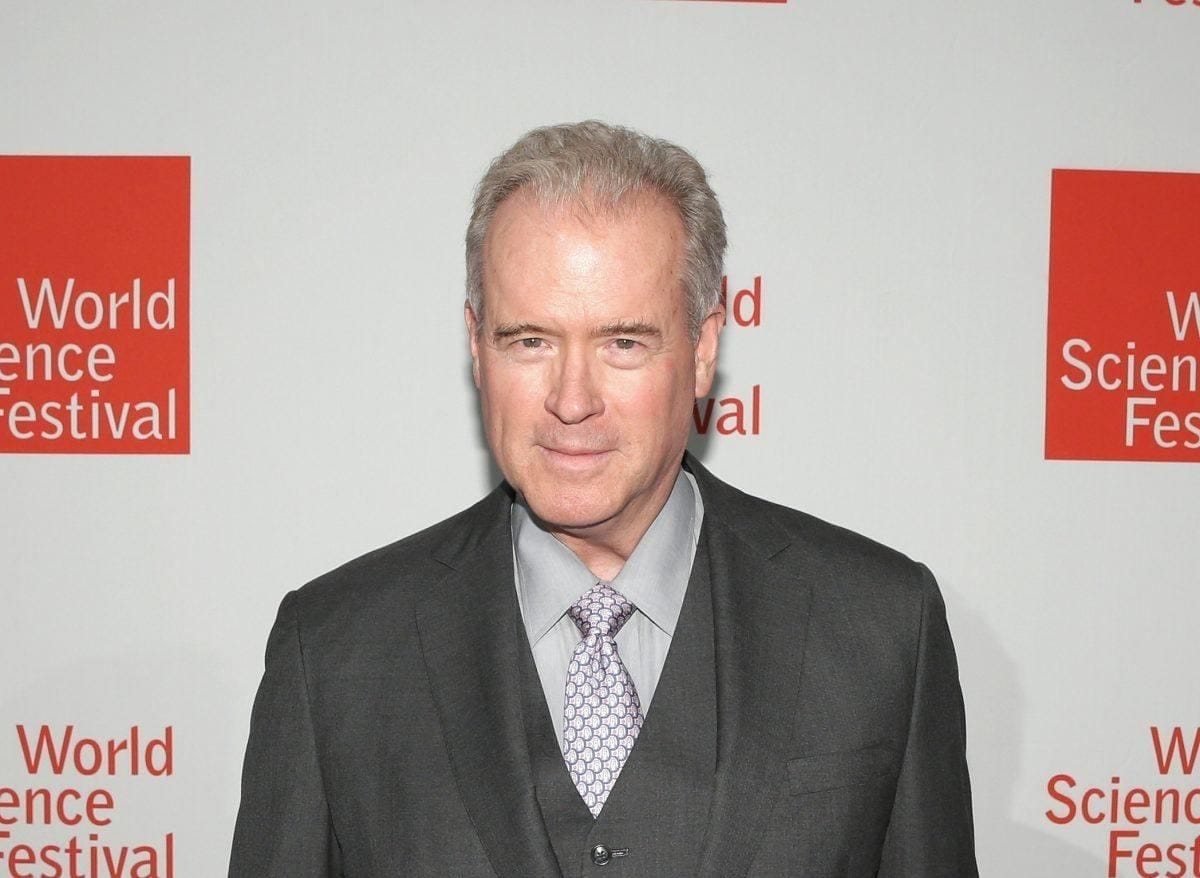
The Mercer Machine: How a Hedge-Fund Family Built a Pipeline for the American Far Right — and What Would Fix It
For more than a decade, Robert Mercer and his daughter Rebekah helped bankroll a hard-right media, data, and advocacy ecosystem that amplified polarizing narratives, turbocharged dark-money politics, and nurtured alternative platforms when mainstream ones enforced basic rules.
For more than a decade, Robert Mercer and his daughter Rebekah helped bankroll a hard-right media, data, and advocacy ecosystem that amplified polarizing narratives, turbocharged dark-money politics, and nurtured alternative platforms when mainstream ones enforced basic rules. Their money flowed through a mix of super PACs, nonprofits, and private ventures — from Breitbart to Cambridge Analytica, from the Government Accountability Institute to Parler — creating a feedback loop that pushed the GOP toward its most extreme faction. They have occasionally stepped back from the spotlight, but recent filings show they’re still writing checks. (The New Yorker, FactCheck.org, OpenSecrets)
The architecture of influence
1) Message factories: Breitbart + “investigations” that set the agenda
The Mercers put at least $10 million into Breitbart, the site that Steve Bannon touted as “the platform for the alt-right.” That investment, coupled with strategic editorial alliances, helped propel hyper-partisan frames into the mainstream. In parallel, the Mercer-funded Government Accountability Institute (GAI) churned out book-length “investigations” designed for easy pickup by major outlets — most famously Clinton Cash, which drove 2016 coverage. (The New Yorker, The Washington Post, Wikipedia)
GAI was co-founded by Bannon and Peter Schweizer in 2012 “with funding from Robert Mercer and family,” part of a media-to-mainstream pipeline described by The New Yorker and Washington Post. (Wikipedia, The New Yorker, The Washington Post)
2) Data & targeting: Cambridge Analytica and the super PAC link
Robert Mercer was a principal backer of Cambridge Analytica, the political data firm at the center of Facebook’s 2018 privacy scandal. Internal emails and later complaints describe overlaps between Mercer-backed super PACs and the firm’s work for the Trump effort; watchdogs argued this blurred lines on coordination. The firm’s New York office even shared space with another Mercer venture, Reclaim New York. (The Guardian, Campaign Legal Center)
The family also financed the “Make America Number 1” super PAC, initially anti-Clinton, that pivoted to support Trump in the general election; allied operatives Kellyanne Conway and Steve Bannon moved into top campaign roles. Nicholas Confessore’s contemporaneous report documented how the Mercers “reshaped” Trump’s operation by installing their team. (FactCheck.org, Wikipedia)
3) State-level pressure campaigns: Reclaim New York
Reclaim New York (RNY) — founded by Robert and Rebekah Mercer with Bannon and joined by Leonard Leo — trained activists to overwhelm local governments with Freedom of Information requests and litigation. RNY became a vehicle for the Mercers’ agenda in New York and literally shared offices with Cambridge Analytica. (Its board still lists Rebekah and Jennifer Mercer, and Leo.) (The Washington Post, reclaimnewyork.com)
4) Alternative platforms: Parler
When mainstream platforms enforced rules against incitement and disinformation, Rebekah Mercer backed and co-founded Parler in 2018, later becoming its controlling shareholder as the site surged with election denial and Jan. 6 organizing chatter. After the Capitol attack, Parler briefly went offline; reporting showed Mercer orchestrating the relaunch and board shake-ups. (The brand has since changed hands again.) (Wikipedia, Axios, The Washington Post, WIRED)
5) Movement infrastructure: courts, climate, and media watchdogs
The Mercer Family Foundation’s 990s and independent analyses show millions to the Federalist Society’s network (closely associated with Leonard Leo’s judicial project), to the Government Accountability Institute, and to Media Research Center, which polices and pressures mainstream media from the right. They also funded climate-science opposition groups including the Heartland Institute and the CO₂ Coalition. (Center for Public Integrity, Foundation Center)
In 2016–17 alone, the foundation gave hundreds of thousands to CO₂ Coalition, per IRS filings and reporting; Heartland received multimillion-dollar support across mid-2010s. (legacy-assets.eenews.net, DeSmog, Center for Public Integrity)
Retreats, resets — and receipts
Under pressure in late 2017, Robert Mercer stepped down as co-CEO of Renaissance Technologies, sold his Breitbart stake to his daughters, and publicly disavowed Milo Yiannopoulos. That didn’t end the family’s influence; it briefly reduced the temperature. Recent OpenSecrets data show Robert Mercer continued giving in 2024 to the RNC, a constellation of state GOP committees — and even Trump’s leadership PAC. (Forbes, The Atlantic, OpenSecrets)
Why this mattered
What the Mercers built — media outlets to inject narratives, “investigations” to launder them, data operations to microtarget, state-level groups to harry opponents, and alt-tech to route around moderation — normalized extremes and intensified asymmetries of information and power in U.S. politics. The ecosystem rode post-Citizens United rules that allow vast, often anonymous spending; 2024 set a record for dark money and online political ad spend, much of it scarcely transparent. (Brennan Center for Justice)
What would actually help (concrete fixes)
- Pass a real digital-ads transparency law.
The bipartisan Honest Ads Act would bring online political ads closer to broadcast rules with clear disclosures and public archives. Platforms still aren’t legally required to provide full transparency in the U.S. — a glaring gap given the scale of online spend. (Congress.gov, Brennan Center for Justice) - Enact comprehensive federal privacy with guardrails on micro-targeting.
The proposed American Privacy Rights Act (APRA) would give users rights over data, rein in brokers, and let people opt out of targeted ads/algorithms — curbing the kind of voter-profiling Cambridge Analytica monetized. (Earlier drafts and summaries outline algorithm and ad-targeting limits.) (Congress.gov, Senate Commerce Committee, WilmerHale) - Drag dark money into the light.
Revive the DISCLOSE Act to require groups spending in elections to reveal major donors; tighten IRS rules for politically active 501(c)(4)s so “social welfare” is not a dark-money conduit. (The Senate last blocked DISCLOSE in 2022; the need is larger now.) (Brennan Center for Justice) - Close donor-advised fund loopholes.
DAFs can anonymize politically adjacent giving when money moves through complex chains. Require timely payouts and transparency when funds support election-related activity or policy campaigns. (Inequality.org, For Purpose Law Group (FPLG)) - Strengthen public-interest research access and archives.
Require large platforms to maintain searchable, permanent ad libraries and support vetted researcher access to political-ad delivery data. (Meta’s plan to purge “expired” ads shows why statute is needed.) (Axios) - Expand small-donor public financing.
Match small contributions (New York City-style) to dilute the outsized power of megadonors and restore local accountability. The Brennan Center’s work details how this increases participation without restricting speech. (Brennan Center for Justice) - Resource the referees.
Boost FEC enforcement and clarify anti-coordination rules so donor-built ecosystems can’t run campaign-adjacent operations with impunity; ensure the IRS can police political activity by nonprofits consistently. (Campaign Legal Center, ProPublica)
The bottom line
The Mercer family didn’t single-handedly create America’s far-right surge. But by wiring cash into aligned media, “investigative” outfits, data-ops, state activism, and alternative platforms — and by exploiting post-Citizens Unitedrules — they helped build a durable infrastructure for it. The fixes aren’t mysterious: transparency, data rights, ad-archive mandates, small-donor systems, and real enforcement would curb the leverage of any one fortune — Mercers today, someone else tomorrow — over our shared information environment.
Sources & further reading
- Jane Mayer, “The Reclusive Hedge-Fund Tycoon Behind the Trump Presidency,” The New Yorker, Mar. 2017. (The New Yorker)
- Washington Post, “How Bannon’s multimedia machine drove a movement…” Apr. 2017. (The Washington Post)
- Center for Public Integrity, Mercer Family Foundation 2015 giving; Federalist Society, Media Research Center, etc. (Center for Public Integrity)
- Government Accountability Institute profile & Clinton Cash funding. (Wikipedia)
- Cambridge Analytica reporting & complaints; CLC filings; office shared with Reclaim NY. (The Guardian, Campaign Legal Center)
- Reclaim New York board/financing (Rebekah & Jennifer Mercer; Leonard Leo). (The Washington Post, reclaimnewyork.com)
- Parler investment, control, and relaunch roles (2018–2021). (Wikipedia, The Washington Post)
- Climate-opposition funding: CO₂ Coalition & Heartland (990s and reporting). (legacy-assets.eenews.net, DeSmog, Center for Public Integrity)
- Robert Mercer’s 2017 resignation/sale of Breitbart stake; disavowal of Yiannopoulos. (Forbes, The Atlantic)
- OpenSecrets donor lookups showing 2024 Robert Mercer contributions (RNC, state GOPs, Save America; Trump). (OpenSecrets)
- Policy proposals: Honest Ads Act (House & Senate); APRA privacy bill; dark-money analyses & DISCLOSE background; small-donor public financing. (Congress.gov, Senate Commerce Committee, Brennan Center for Justice)
(All links above point to primary reporting, official bill pages, or credible nonprofits. Where Wikipedia is referenced, it’s to surface additional primary links already cited above.)






Comments